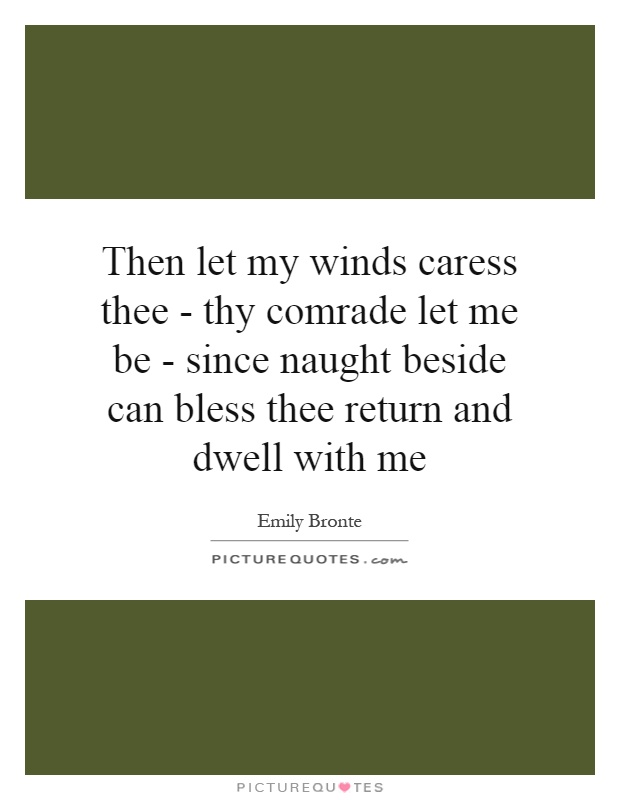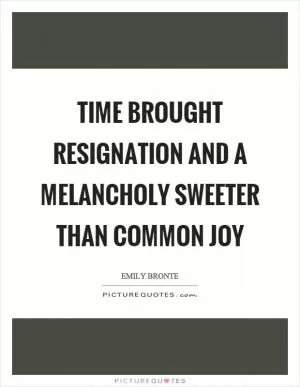Then let my winds caress thee - thy comrade let me be - since naught beside can bless thee return and dwell with me

Then let my winds caress thee - thy comrade let me be - since naught beside can bless thee return and dwell with me
Emily Bronte, the enigmatic author of the classic novel "Wuthering Heights," was known for her hauntingly beautiful poetry that captured the raw emotions of love, loss, and longing. One of her most famous poems, "The Night-Wind," contains the poignant lines: "Then let my winds caress thee - thy comrade let me be - since naught beside can bless thee return and dwell with me."In these lines, Bronte personifies the night wind as a gentle and comforting presence, offering solace and companionship to the one it addresses. The speaker implores the beloved to allow the wind to caress them, to be their companion in times of need, as nothing else can bring them the same sense of peace and contentment.
The imagery of the wind as a soothing and constant presence is a recurring theme in Bronte's work, reflecting her own deep connection to nature and the elements. The wind, with its ever-changing and unpredictable nature, mirrors the tumultuous emotions and desires of the human heart, making it a fitting symbol for the intense passion and longing that permeate Bronte's writing.
The idea of returning and dwelling with the speaker suggests a desire for unity and closeness, a longing to be reunited with the beloved and to find solace in their presence. It speaks to the universal human yearning for connection and belonging, for a sense of home and belonging that transcends physical boundaries.












 Friendship Quotes
Friendship Quotes Love Quotes
Love Quotes Life Quotes
Life Quotes Funny Quotes
Funny Quotes Motivational Quotes
Motivational Quotes Inspirational Quotes
Inspirational Quotes